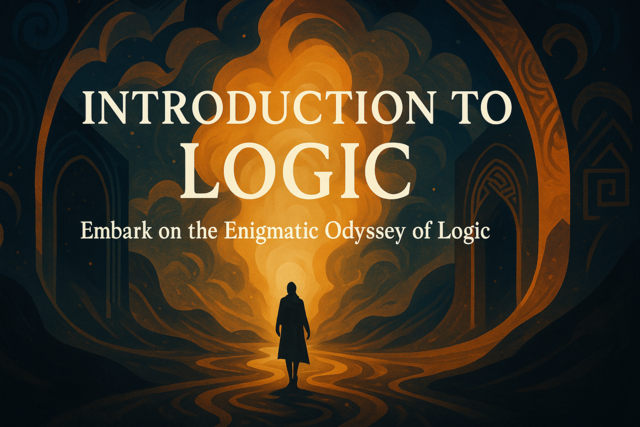Introduction
Charitable trusts are not only a wonderful way to support organizations doing excellent work for a cause you believe in, but also a preferred way to avoid paying over inflated, estate taxes to the government. Created by congress decades ago to encourage the wealthy to support charitable causes, these trusts have a dual benefit. Most people would prefer to see a well deserving charity receive needed donations than Uncle Sam! There are many trusts available that can be used to accomplish the goal of giving more to loved ones and charity without losing too much to estate taxes. This article introduces you to some of the charitable trusts available. In this article we will define CRT's, CLT's and the major trusts associated with them. You will learn what the trusts do and what they are used for.
Most of these trusts must be executed by an attorney. Ask for their advice as well before deciding on a trust that is best suited for you and your family. If set up properly, many of these trusts can provide tax exempt income for you or your heirs in the future.
What is a Charitable Trust?
When established according to federal tax laws, these trusts will allow the grantor to deduct a portion of the total gift as a current charitable tax deduction. Further, depending on the type of charitable trust it is, the trust may qualify for an estate tax deduction or exemption upon the death of the grantor.
What is a CRT?
A CRT is a Charitable Remainder Trust. This simply means that a donor or non-charitable beneficiary receives a percent of income from the trust for a set amount of years or until the death of the beneficiary or donor or until the set term has reached its end, depending on which type of CRT is set up. (See below). After the death of the donor or non-charitable beneficiary or heir(s), the remainder of the trust goes to one or more charities. The assets and property go into the trust via the donor, the beneficiaries are named, and the terms are set. Two of the basic types of charitable trust below fall under the category of CRT; the CRAT and the CRUT. CRTs are often used as supplementary income or when a donor desires that an heir receive a set annual income for life or a set number of years.
What is a CLT?
A CLT is a Charitable Lead Trust. Essentially these trusts work in the opposite manner from CRTs. Rather than a donor receiving a percentage of the trust over time, a charity receives annual payments for a set number of years. After the terms have expired, the donor or named beneficiary receives what is left in the trust. Two of the basic types of charitable trust below fall under the category of CLT; the CLAT and the CLUT. CRTs are favored when interest rates are low and they incur more tax benefits during these times. CLTs are often used to simply reduce the amount of estate taxes that must be paid by any individual. They are not used as supplementary income as are CRTs.
There are four basic types of charitable trusts:
1. CLAT--The charitable lead annuity trust.
Definition: One or more charities are paid a set amount each year for a set number of years. The remainder of money left in the trust passes back to the donor (you) or to non-charitable beneficiaries (your heirs). CLAT's are best used when interest rates are low because that is when this type of trust receives the most tax breaks. The beauty is that these trusts can be set for long or short periods, so, if the interest rates are going to be predictably low for a certain term, the trust can be set up for only that time period. CLAT's essentially work in an opposite manner from CRAT's.
2. CLUT--The charitable lead unitrust.
Definition: Also called a "split-interest" trust. One of more charities receives payments for a fixed (lead interest) number of years. At the end of the charitable lead interest the remainder of the trust is given to non-charitable beneficiaries.
3. CRAT--The charitable remainder annuity trust.
Definition: One ore more non-charitable beneficiaries (or the donor) are paid a set amount each year for a set number of years for life. After the death of the donor(s) the remainder of the trust passes to one or more charities. CRAT's are excellent for those who want a fixed income each year regardless of investment performance. Additionally, with a CRAT a portion of the income from the trust can be used to purchase a life insurance policy outside the estate which will pass to the beneficiaries' tax free after the death of the original donor(s). CRAT's are set and cannot be added to once created. Annual payouts to the donor remain the same for the life of the trust.
4. CRUT--The charitable remainder unitrust.
Definition: A fixed percentage of the value of the trust is paid to non-charitable beneficiaries each year. When the trust reaches the end of its term, the remainder of the trust is given to one or more charities. CRUT's are similar to CRAT's in that they pay out a percentage to the donor each year and the remainder is turned over to a charity at the end, however, the annual income from a CRUT will vary depending on how the investments did in each particular year. Each year the assets in the CRUT trust are re-valued and the payout percentage will be according to the total annual value.
A Charitable Trust can be created under a living trust or a testamentary trust but if any distributions are made during the grantor's lifetime, then the Charitable Trust must be an irrevocable living trust.
Conclusion
Why Singles Need a Will More than Married Couples Do
Many singles tend to avoid estate planning altogether. Whether it is because the majority are young and believe that they will eventually marry and create an estate plan later in life, or whether they prefer to enjoy the single life style without thinking about wills, trusts and heirs, is not clear. What is clear though is that singles need to have a will more than their married counterparts. Why? Because if you are married, even if you don't have a will, the court will--in nearly all cases--appoint the spouse the legal guardian. This means that married folks have a fall back "guy" who can make medical and financial decisions for them if they cannot do so for themselves. Who do you have? Getting the point yet? Singles need to have a will and a durable power of attorney so that the court does not appoint your Russian speaking, eighty year old, devout orthodox aunt as your guardian or your psychopathically jealous sister your health care advisor. With a will you can decide who will benefit from the assets you have, no matter how small they may seem, and you will also decide who will make medical decisions in your behalf.
Dangers of Singles Not having a Will:
- If you are separated without children, your estranged spouse will end up with your assets.
- Assets without wills usually go to the "next of kin" that survive you in this order, parents, siblings, nieces & nephews.
- If you are divorced with kids, your children will get your estate, but if something happens to them, your ex-spouse will get your estate if you don't have a will.
- Someone you don't like or whose personal or religious opinions you don't agree with could end up making your health care decisions.
- Someone you don't trust could end up making your financial decisions.
- People you may not have even met may end up with all your belongings which they will ultimately donate to the Salvation Army.
If you want to direct the what, where, and when of your life and your assets, then make a will.
Update Your Information
Whether you are newly single or have never married, it is important to periodically check the named beneficiaries on insurance policies (work issued policies included), 401k plans, saving or checking accounts, and any other asset you have that lists a beneficiary. Why is this important? Even if you have a will, if you did not change the beneficiary on your 401k from your ex-spouse to your favorite niece or nephew, your ex will get that 401k and there is not much your family can do about it. So, every so often, be sure that your data is updated to reflect your current life circumstances!
Pets
Singles are more likely to have a pet than married couples are and are often more attached to their pets. Please make sure to create provisions for your pets in the event something happens to you and you cannot care for them. If you do not, they could end up with someone you would never have chosen or even in a shelter. You can state your wishes in your will and name a guardian. You can also put aside financial assistance for your pet and name a trustee to distribute the funds to the guardian if this is financially feasible for you. Also you could name the guardian as the trustee so they can use the funds as needed for your pet's life and health care.
Life Insurance
For those who work for any mid-sized or large corporation, a life insurance policy is often standard, along with a health insurance package. Unless you are high on the executive ladder, they payout will be modest, but it could be upwards of $20,000.00. Be sure to check who your beneficiary and back-up beneficiary is after big changes in your life. Also, be sure to add mention of the policy in your will and re-state the beneficiaries there as well.
Singles often find no reason to have the added expense of an additional, privately paid life insurance policy, and paying on an insurance plan may very well be unnecessary for singles. If there is no one for whom you would like to care for if you passed away, then skip the added expense of a private policy. However, if you have children, or any dependants, you need to have a policy that is more comprehensive than the one issued on the job. For single parents or singles with dependents the same life insurance rules apply as for those who are married. For those who are widowed, life insurance is even more important.
Choosing an Executor or Executrix
This step is often skipped by singles because they believe that if they do not have a lot of assets or own a home, then they do not need an executor or executrix, however, executors take care of much more than distributing property. This person is also charged with filing the death certificate, notifying creditors and others of your passing, making final arrangements and carrying out your wishes in that regard, paying any bills that are due, and settling the estate. It is a big job and one that you need to give to someone you trust. It seems obvious, but you should probably not name someone much older than you as executor such as your mother, father or an older sibling. According to experts, it is better to choose a sibling close in age or younger, a close friend (one who you know will be around for the duration!) or a significant other (also, a partner who you are sure will be around for your lifetime). If you have children and have an amicable relationship with your ex spouse, you may even name him or her executor or executrix, provided you trust them. They will, in most cases, have the best interest of your mutual heirs in mind and may not mind taking on the task, even if they have re-married. If anything changes in the relationship with your chosen executor, be sure to update your will accordingly. Be sure to ask your executor(trix) of choice before naming them in your will and be sure to let them know where they can find your important papers. If they live a distance from you, be sure to mail them a copy of your papers.
Conclusion































